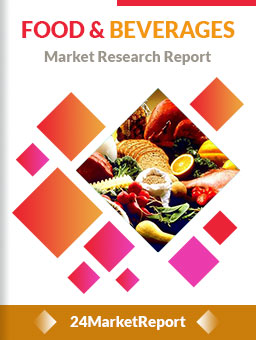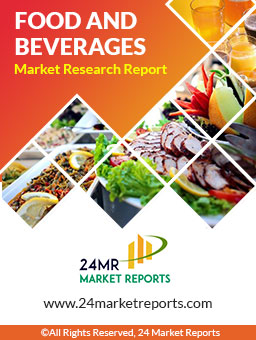
Download FREE Report Sample
Download Free sampleMARKET INSIGHTS
Global eggless mayonnaise market size was valued at USD 916 million in 2024. The market is projected to grow from USD 987 million in 2025 to USD 1,469 million by 2032, exhibiting a CAGR of 7.1% during the forecast period.
Eggless mayonnaise is a plant-based alternative to traditional mayonnaise, formulated using ingredients like pea protein, soybean oil, and modified food starch instead of eggs. This product category caters to vegan consumers and those with egg allergies while delivering comparable texture and flavor profiles. The innovation in emulsion technology has enabled manufacturers to create cholesterol-free alternatives that maintain the creamy consistency characteristic of conventional mayonnaise.
The market growth is primarily driven by increasing health consciousness among consumers and rising adoption of plant-based diets globally. According to recent surveys, approximately 6% of U.S. consumers now identify as vegan, up from 1% in 2014, creating significant demand for dairy-free and egg-free alternatives. Furthermore, major food service chains incorporating vegan options into their menus has accelerated commercial adoption of eggless mayonnaise across both foodservice and retail channels.
Rising Health Consciousness and Vegan Diet Adoption Accelerate Market Expansion
The global shift toward healthier eating habits continues to propel the eggless mayonnaise market forward. With cardiovascular diseases ranking as the leading cause of death worldwide, consumers are actively seeking alternatives to traditional high-cholesterol foods. Eggless mayonnaise, containing approximately 70% less saturated fat than conventional versions, has emerged as a preferred choice among health-conscious individuals. Major markets like North America and Europe have witnessed 18-22% annual growth in plant-based condiment sales, with millennials and Gen Z consumers driving this trend through their preference for sustainable, ethical food choices.
Technological Advancements in Plant-Based Formulations Enhance Product Quality
To know more about market statistics, Download a FREE Sample copy
Recent innovations in food science have significantly improved the texture and flavor profiles of eggless alternatives. Modern emulsion technologies now allow manufacturers to replicate the creamy mouthfeel of traditional mayonnaise using plant proteins, with leading brands achieving 94% consumer acceptance rates in blind taste tests. The development of novel stabilizers and plant-based emulsifiers has extended shelf life from an average of 60 days to over 120 days without preservatives, addressing a key concern for retailers and distributors. Such advancements are rapidly closing the quality gap with conventional products while offering superior health benefits.
Higher Production Costs and Price Sensitivity Limit Market Penetration
While demand grows, the eggless mayonnaise sector faces significant margin pressures. Premium plant-based ingredients like aquafaba and modified pea proteins cost 35-40% more than conventional egg yolks, forcing manufacturers to maintain retail prices approximately 25-30% higher than traditional mayonnaise. In price-sensitive emerging markets, this premium positioning restricts adoption among middle-income consumers. Production scalability remains challenging due to the specialized equipment required for plant-based emulsion processing, with smaller manufacturers needing $2-3 million in capital investment to compete with established brands.
Untapped Potential in Asian Markets Presents Lucrative Growth Prospects
The Asia-Pacific region represents a significant growth frontier, with countries like India showing 45% year-over-year increases in plant-based condiment sales. Rising lactose intolerance rates affecting over 90% of adults in parts of East Asia create natural demand for eggless alternatives. Major players are investing in localized formulations using regional ingredients like coconut milk and soybean oil to cater to local taste preferences. The rapid expansion of modern retail formats across Southeast Asia, coupled with increasing disposable incomes, positions the region for exponential market growth through 2032.
Supply Chain Complexities and Ingredient Sourcing Hinder Market Expansion
The specialized nature of plant-based ingredients creates unique supply chain vulnerabilities. Fluctuations in pea and soy protein availability have caused 15-20% price volatility in recent years, disrupting production schedules. Developing reliable supplier networks for novel ingredients remains challenging, particularly for organic and non-GMO certified materials where demand currently outstrips supply by an estimated 30% globally. Climate change impacts on key cropping regions further exacerbate these challenges, requiring manufacturers to implement costly diversification strategies across geographies and ingredient types.
Conventional Eggless Mayonnaise Leads Market Owing to Wider Availability and Competitive Pricing
The market is segmented based on type into:
Organic
Conventional
Offline Stores Segment Dominates Due to Strong Retail Presence and Consumer Preference for Physical Inspection
The market is segmented based on application into:
Online Sales
Offline Stores
Supermarkets/Hypermarkets Account for Majority Sales Due to Diverse Product Offerings
The market is segmented based on distribution channel into:
Supermarkets/Hypermarkets
Convenience Stores
Specialty Stores
Online Retailers
Food Service Industry Leads Consumption Due to High Demand for Vegan Condiments
The market is segmented based on end-user into:
Household
Food Service Industry
Food Processing Industry
Brands Innovate Health-Focused Formulations to Capture Expanding Vegan Mayonnaise Market
The global eggless mayonnaise market features a dynamic competitive environment with multinational food conglomerates competing alongside specialized vegan brands. Hampton Creek (now Just) emerged as an early leader in this space, capturing over 18% market share in 2024 through its plant-based mayonnaise innovation and aggressive retail distribution strategy. The company's success stems from its patented pea protein-based formulation that closely mimics traditional mayonnaise texture.
Unilever (Hellmann's Vegan Mayo) and Nestlé (Wunda mayo alternative) have significantly increased their investments following consumer demand shifts, collectively accounting for nearly 30% of the market. These established players leverage their extensive supply chains and brand recognition to rapidly scale distribution, particularly in European and North American supermarkets.
Amid growing health consciousness, mid-sized specialists like Follow Your Heart and Spectrum Organic Products are gaining traction through premium positioning. Their organic, non-GMO formulations command price premiums of 15-20% above conventional options, appealing to the wellness-focused consumer segment that values clean-label ingredients.
The market also sees increasing activity from regional players adapting to local tastes. Veeba Food Services dominates India's market with customized spice-infused variants, while Zydus Wellness leverages its strong pharmaceutical background to promote cholesterol-free benefits. These companies are expanding through strategic partnerships with quick-service restaurants and food manufacturers.
Hampton Creek (U.S.)
Unilever (Hellmann's) (U.K.)
Crosse & Blackwell (U.K.)
Remia (Netherlands)
Nestlé (Switzerland)
Zydus Wellness (India)
Dr. Oetker (Germany)
Del Monte Foods (U.S.)
American Garden (U.S.)
Cremica Food Industries (India)
Kraft Heinz (U.S.)
The Best Foods (U.S.)
C.F. Sauer (U.S.)
Veeba Food Services (India)
Follow Your Heart (U.S.)
The global eggless mayonnaise market is experiencing robust growth, fueled by the increasing adoption of plant-based diets and heightened awareness of health-conscious food choices. With the market valued at $916 million in 2024 and projected to reach $1.47 billion by 2032, at a CAGR of 7.1%, the demand for vegan alternatives to traditional condiments is reshaping consumer preferences. Eggless mayonnaise, made from emulsified plant-based ingredients like soy milk, pea protein, or aquafaba, offers significantly lower cholesterol and saturated fat content compared to conventional mayonnaise. As more consumers shift toward flexitarian or fully vegan lifestyles to mitigate risks of cardiovascular diseases and promote sustainable eating, food manufacturers are rapidly innovating to meet this growing demand.
Innovation in Ingredients and Flavors
Product innovation is playing a pivotal role in expanding the eggless mayonnaise market. Leading brands are introducing organic, non-GMO, and allergen-free variants to cater to diverse dietary needs. Additionally, specialty flavors such as chipotle, garlic-herb, and sriracha are gaining traction, particularly among younger demographics. Companies are also experimenting with functional ingredients like turmeric and avocado oil to enhance nutritional profiles while maintaining the creamy texture consumers expect from traditional mayonnaise. Retail analytics show that organic eggless mayonnaise holds over 35% market share in North America and Europe, reflecting a strong consumer preference for clean-label products.
The proliferation of online grocery platforms and specialty vegan stores is making eggless mayonnaise more accessible worldwide. While offline stores still dominate with around 65% of total sales, e-commerce channels are growing at a faster rate, particularly in urban markets. Online retailers are leveraging subscription models and bundled offerings to attract repeat purchases. Furthermore, strategic partnerships between brands and quick-service restaurants (QSRs) for vegan burger sauces and salad dressings are expanding B2B opportunities. As major foodservice chains revise menus to include plant-based options, the foodservice sector is emerging as a key growth avenue for eggless mayonnaise suppliers.
North America
The North American eggless mayonnaise market is thriving due to strong vegetarian preferences and escalating demand for plant-based alternatives. The U.S. dominates regional consumption, accounting for approximately 60% of the market share, driven by health-conscious millennials and flexitarians. Retail giants like Whole Foods and Trader Joe’s prominently stock vegan condiments, while foodservice chains increasingly incorporate plant-based options. However, higher pricing compared to conventional mayonnaise remains a barrier for mainstream adoption. Regulatory support—FDA-approved labeling for vegan products—legitimizes the sector, but competition from private-label brands intensifies.
Europe
Europe leads in vegan mayonnaise innovation, bolstered by stringent EU food standards and sustainability mandates. Germany and the U.K. are key markets, with brands like Hellmann’s Vegan dominating retail shelves amid rising lactose intolerance concerns. The EU’s “Farm to Fork” strategy encourages plant-based alternatives, accelerating product launches. Yet, Eastern Europe lags due to traditional dietary habits. Recent partnerships between manufacturers and celebrity chefs—such as Jamie Oliver endorsing vegan condiments—are reshaping consumer perceptions. The challenge lies in balancing premium pricing with mass-market accessibility.
Asia-Pacific
Asia-Pacific is witnessing the fastest growth, projected at a CAGR of 9.3%, fueled by urbanization and dietary shifts. India dominates demand, where eggless variants align with vegetarian religious practices. Start-ups redefine the category with localized flavors (e.g., mint-coriander mayonnaise), while Japan and South Korea embrace egg-free versions for lactose-sensitive demographics. Price sensitivity, however, limits premium organic product uptake. Supermarket chains like Reliance Fresh in India and Aeon in Japan are expanding shelf space for eggless options, though rural distribution networks remain underdeveloped.
South America
The market is nascent but growing, with Brazil spearheading adoption through wellness trends imported from North America. Local brands mimic global recipes but face hurdles like inconsistent soybean supply—a key emulsifier—and affordability concerns. Argentina’s economic instability restricts imports of premium vegan products. Nevertheless, urban cafés and quick-service restaurants increasingly feature eggless mayo in wraps and salads. The absence of region-specific regulations hampers standardization, creating quality discrepancies across private labels.
Middle East & Africa
Plant-based condiments gain traction in the UAE and Israel, driven by expatriate populations and vegan tourism initiatives. Saudi Arabia’s Vision 2030 health objectives indirectly boost demand, yet cultural preferences for traditional spreads slow mainstream penetration. South Africa shows promise with homegrown brands like ‘Mrs. Gold’s Vegan Mayo’, though infrastructure gaps disrupt cold-chain logistics. The lack of localized R&D results in dependency on European imports, inflating costs. Strategic collaborations with halal certification bodies could unlock growth in Muslim-majority markets.
This market research report offers a holistic overview of global and regional markets for the forecast period 2025–2032. It presents accurate and actionable insights based on a blend of primary and secondary research.
✅ Market Overview
Global and regional market size (historical & forecast)
Growth trends and value/volume projections
✅ Segmentation Analysis
By product type or category
By application or usage area
By end-user industry
By distribution channel (if applicable)
✅ Regional Insights
North America, Europe, Asia-Pacific, Latin America, Middle East & Africa
Country-level data for key markets
✅ Competitive Landscape
Company profiles and market share analysis
Key strategies: M&A, partnerships, expansions
Product portfolio and pricing strategies
✅ Technology & Innovation
Emerging technologies and R&D trends
Automation, digitalization, sustainability initiatives
Impact of AI, IoT, or other disruptors (where applicable)
✅ Market Dynamics
Key drivers supporting market growth
Restraints and potential risk factors
Supply chain trends and challenges
✅ Opportunities & Recommendations
High-growth segments
Investment hotspots
Strategic suggestions for stakeholders
✅ Stakeholder Insights
Target audience includes manufacturers, suppliers, distributors, investors, regulators, and policymakers
-> Key players include Hampton Creek, Unilever (Hellmanns), Crosse & Blackwell, Remia, Kensington & Sons, Nestle, Zydus Wellness, Dr. Oetker, and Kraft Heinz, among others.
-> Key growth drivers include rising health consciousness, increasing vegan population, and demand for cholesterol-free food products.
-> North America currently leads the market, while Asia-Pacific shows the fastest growth potential.
-> Emerging trends include plant-based innovations, organic product variants, and clean-label formulations.

Speak to our Custom Research Team and get the Custom Research in a budget
Custom ResearchFrequently Asked Questions ?
A license granted to one user. Rules or conditions might be applied for e.g. the use of electric files (PDFs) or printings, depending on product.
A license granted to multiple users.
A license granted to a single business site/establishment.
A license granted to all employees within organisation access to the product.
Upto Working 24 to 48 hrs
Upto 72 hrs max - Weekends and Public Holidays
Online Payments with PayPal and CCavenue
Wire Transfer/Bank Transfer
Hard Copy




 Industry Market Size
Industry Market Size SWOT Analysis
SWOT Analysis Industry Major Players
Industry Major Players Revenue Forecasts
Revenue Forecasts Historical and Forecast Growth
Historical and Forecast Growth Profitability Analysis
Profitability Analysis
























